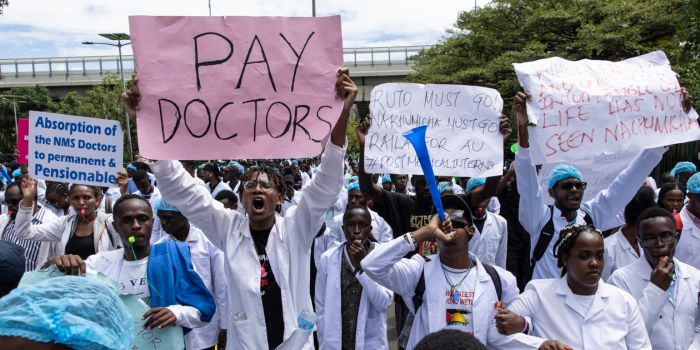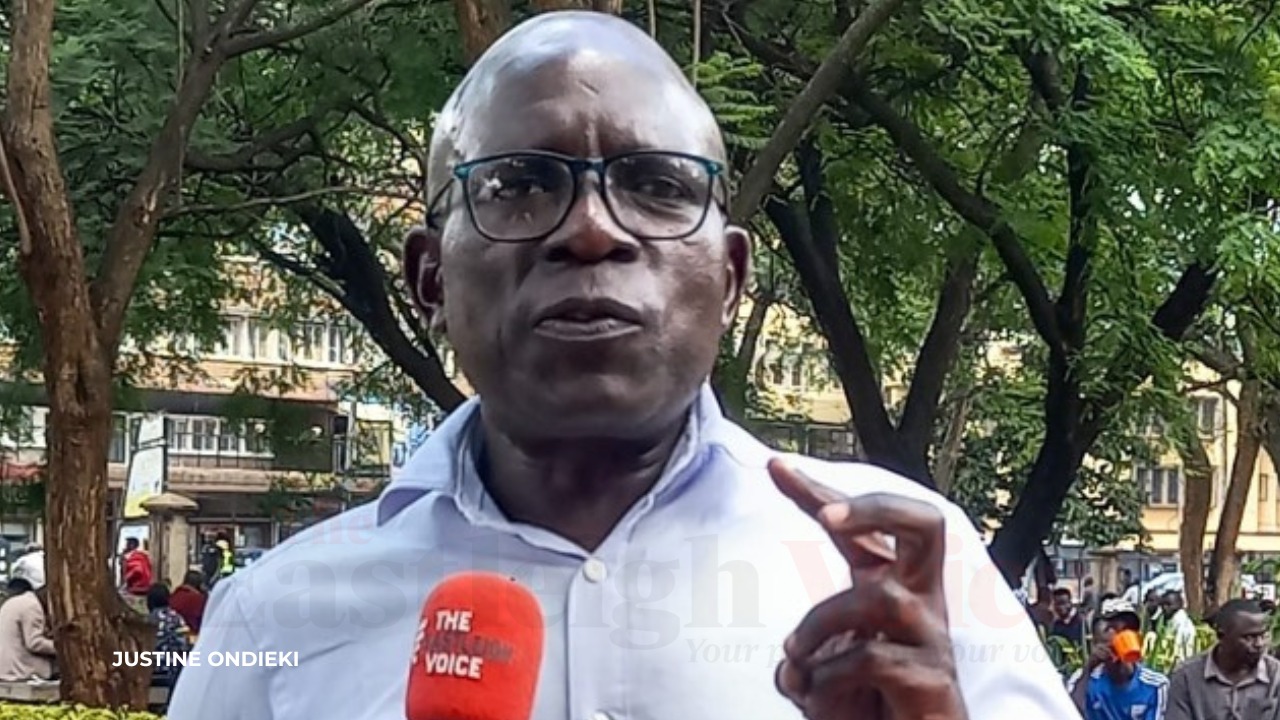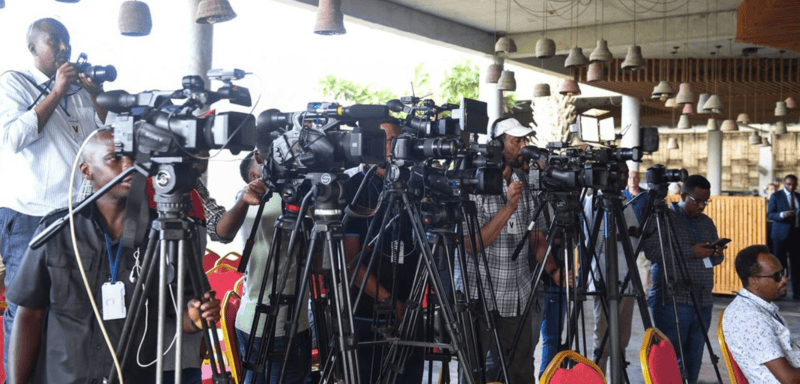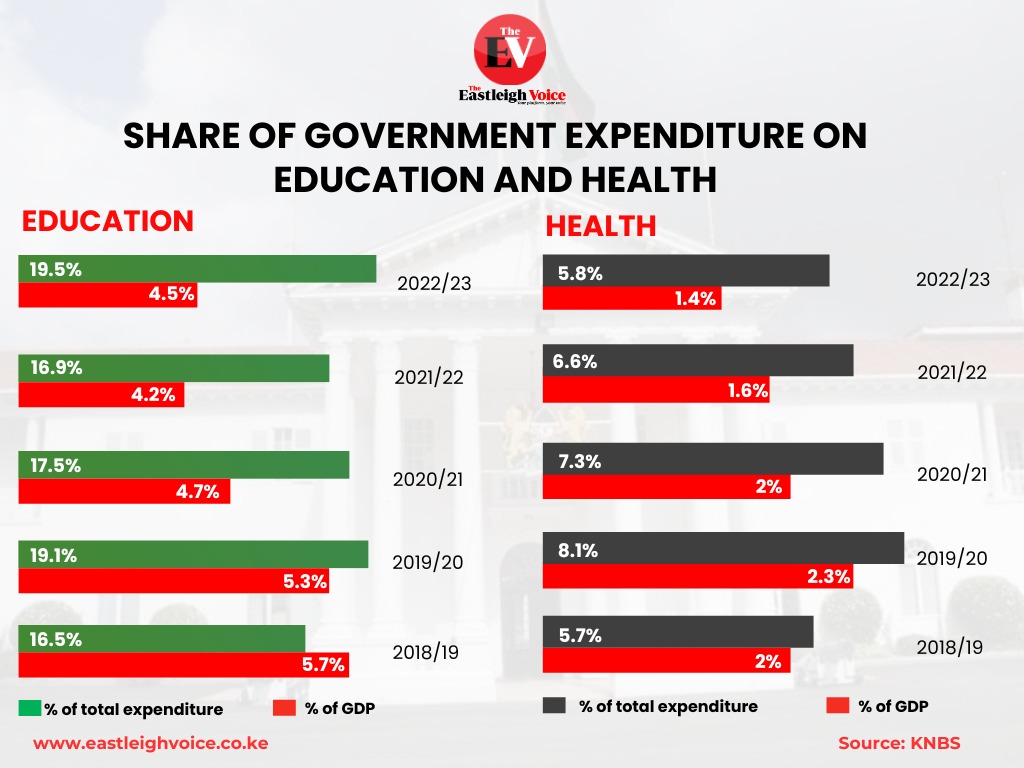Pharmaceutical Society of Kenya joins striking doctors in push for reforms

Kenya needs a robust healthcare system with a well-supported and empowered medical workforce, PSK notes, in its demands for quick action.
The Pharmaceutical Society of Kenya (PSK) has thrown its weight behind the ongoing demonstrations by healthcare workers, urging the government to address their grievances and ensure uninterrupted access to quality services for all Kenyans.
PSK President Louis Machogu emphasised in a statement the need for a robust healthcare system with a well-supported and empowered medical workforce.
More To Read
- Health Ministry clarifies Kenya–US health partnership respects sovereignty, data protection
- Third Kilifi health forum opens with urgent calls for financing, digital solutions
- England confirms new mpox strain: What you need to know
- Kenya urges stronger regional cooperation as transport corridors fuel disease risks across East Africa
- How Trump–Ruto health deal fills the void left after USAID exit
- Garissa County signs MoU with KMPDU to boost doctors’ careers and staffing
Machogu highlighted several key issues, including the expedited deployment of medical interns, upholding the 2017 Collective Bargaining Agreement, adherence to staffing norms, and ensuring access to healthcare for all patients.
"The well-being of Kenyan patients must remain paramount, and we need concerted efforts to ensure the uninterrupted delivery of essential healthcare services nationwide."
The PSK also offered its support and guidance to the Ministry of Health, urging it to consult on pharmacist-related matters such as call allowances, specialisations, and their role in Universal Health Coverage (UHC).
"We are committed to informing, shaping, and improving healthcare delivery for all Kenyans," Machogu said.
The PSK's move comes as healthcare workers across the country continue to protest over poor working conditions, inadequate staffing, and unfulfilled promises by the government.
The demonstrations have sparked a national conversation on the state of healthcare in Kenya, with many calling for reforms to ensure quality services for all citizens.
"The government must uphold and honour the 2017 Collective Bargaining Agreement on basic salaries and benefits for healthcare professionals. Failure to do so not only undermines the morale of medical personnel but also jeopardises the quality of patient care," Machogu noted.
Doctors in Nairobi held another protest on Tuesday, pushing for the implementation of their grievances.
The Kenya Medical Practitioners, Pharmacists, and Dentists Union (KMPDU) had notified the Nairobi regional police commander of their intention to hold the protests and requested security.
However, Interior Cabinet Secretary Kithure Kindiki stated that the gatherings and protests by striking health workers are in contempt of court, citing an Employment and Labour Relations Court order that urged reconciliation and negotiations.
Kindiki claimed that participants in the industrial action have threatened violence against health workers who chose not to take part in the strike. He directed law enforcement agencies to protect those who have foregone the strike and maintain law and order to protect the general public.
The doctors, however, dismissed Kindiki's claims as "propaganda" aimed at justifying the use of force against them. KMPDU Deputy Secretary-General Dennis Miskellah stated that they have always engaged in peaceful protests and warned the government against attempting to disperse them.
Miskellah emphasised that any reason to attack working doctors is baseless, as they have been protesting peacefully from home. He added that any act of violence against their members would lead to the immediate shutdown of all health facilities.
“We only engage in peaceful protests. Any excuse that we have used to attack those who are working is cheap propaganda aimed at justifying the use of brute force against peaceful and harmless doctors. How do we attack people who are working from home?”
Earlier on Tuesday, the opposition announced its intention to join striking medical workers countrywide in demonstrations, signalling a return to street protests as part of efforts to force the government to address key issues.
Kalonzo Musyoka, a principal of the opposition's Azimio la Umoja coalition and leader of the Wiper Democratic Movement, led the party in declaring displeasure with the way President William Ruto's administration is handling the health crisis.
Top Stories Today













































